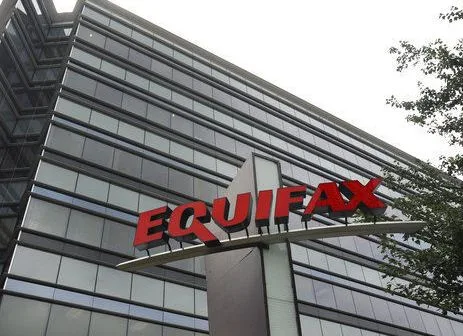Equifax data hack shows that citizens have few rights when it comes to protecting personal information
By Bruce Schneier
Last Thursday, Equifax reported a data breach that affects 143 million U.S. customers, about 44% of the population. It’s an extremely serious breach; hackers got access to full names, Social Security numbers, birth dates, addresses, driver’s license numbers — exactly the sort of information criminals can use to impersonate victims to banks, credit card companies, insurance companies, and other businesses vulnerable to fraud.
can use to impersonate victims to banks, credit card companies, insurance companies, and other businesses vulnerable to fraud.
Many sites posted guides to protecting yourself now that it’s happened. But if you want to prevent this kind of thing from happening again, your only solution is government regulation (as unlikely as that may be at the moment).
The market can’t fix this. Markets work because buyers choose between sellers, and sellers compete for buyers. In case you didn’t notice, you’re not Equifax’s customer. You’re its product.
 This happened because your personal information is valuable, and Equifax is in the business of selling it. The company is much more than a credit reporting agency. It’s a data broker. It collects information about all of us, analyzes it all, and then sells those insights.
This happened because your personal information is valuable, and Equifax is in the business of selling it. The company is much more than a credit reporting agency. It’s a data broker. It collects information about all of us, analyzes it all, and then sells those insights.
Its customers are people and organizations who want to buy information: banks looking to lend you money, landlords deciding whether to rent you an apartment, employers deciding whether to hire you, companies trying to figure out whether you’d be a profitable customer — everyone who wants to sell you something, even governments.
It’s not just Equifax. It might be one of the biggest, but there are 2,500 to 4,000 other data brokers that are collecting, storing, and selling information about you — almost all of them companies you’ve never heard of and have no business relationship with.
Surveillance capitalism fuels the Internet, and sometimes it seems that everyone is spying on you. You’re secretly tracked on pretty much every commercial website you visit. Facebook is the largest surveillance organization mankind has created; collecting data on you is its business model. I don’t have a Facebook account, but Facebook still keeps a surprisingly complete dossier on me and my associations — just in case I ever decide to join.
I also don’t have a Gmail account, because I don’t want Google storing my email. But my guess is that it has about half of my email anyway, because so many people I correspond with have accounts. I can’t even avoid it by choosing not to write to gmail.com addresses, because I have no way of knowing if newperson@company.com is hosted at Gmail.

Sen. Heidi Heitkamp says someone should go to jail for Equifax hack.
And again, many companies that track us do so in secret, without our knowledge and consent. And most of the time we can’t opt out. Sometimes it’s a company like Equifax that doesn’t answer to us in any way. Sometimes it’s a company like Facebook, which is effectively a monopoly because of its sheer size. And sometimes it’s our cell phone provider. All of them have decided to track us and not compete by offering consumers privacy. Sure, you can tell people not to have an email account or cell phone, but that’s not a realistic option for most people living in 21st-century America.
The companies that collect and sell our data don’t need to keep it secure in order to maintain their market share. They don’t have to answer to us, their products. They know it’s more profitable to save money on security and weather the occasional bout of bad press after a data loss. Yes, we are the ones who suffer when criminals get our data, or when our private information is exposed to the public, but ultimately why should Equifax care?
Yes, it’s a huge black eye for the company — this week. Soon, another company will have suffered a massive data breach and few will remember Equifax’s problem. Does anyone remember last year when Yahoo admitted that it exposed personal information of a billion users in 2013 and another half billion in 2014?
This market failure isn’t unique to data security. There is little improvement in safety and security in any industry until government steps in. Think of food, pharmaceuticals, cars, airplanes, restaurants, workplace conditions, and flame-retardant pajamas.
Market failures like this can only be solved through government intervention. By regulating the security practices of companies that store our data, and fining companies that fail to comply, governments can raise the cost of insecurity high enough that security becomes a cheaper alternative. They can do the same thing by giving individuals affected by these breaches the ability to sue successfully, citing the exposure of personal data itself as a harm.
By all means, take the recommended steps to protect yourself from identity theft in the wake of Equifax’s data breach, but recognize that these steps are only effective on the margins, and that most data security is out of your hands. Perhaps the Federal Trade Commission will get involved, but without evidence of “unfair and deceptive trade practices,” there’s nothing it can do. Perhaps there will be a class-action lawsuit, but because it’s hard to draw a line between any of the many data breaches you’re subjected to and a specific harm, courts are not likely to side with you.
If you don’t like how careless Equifax was with your data, don’t waste your breath complaining to Equifax. Complain to your government.
_________________
Bruce Schneier is a lecturer at the Harvard Kennedy School and a fellow at the Berkman-Klein Center for Internet and Society. He blogs at www.schneier.com.





















